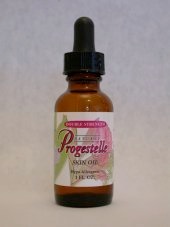

Stress increases Histamine and Interleukin-6. This in turn makes it difficult for the body to excrete all chemicals - including xenoestrogens.
Friday, August 15, 2008 9:22 AM
Psychological stress and anxiety may be able to exacerbate seasonal allergy attacks and make them last longer, stated by a paper presented at the annual meeting of the American Psychological Association in Boston.
"People may be setting themselves up to have more persistent problems by being stressed and anxious when allergy attacks begin," Dr. Janice Kiecolt-Glaser, Ohio State University professor of psychology and psychiatry in Columbus.
Kiecolt-Glaser wanted to study how stress and anxiety affects allergic individuals. Kiecolt-Glaser obtained 28 men and women with a history of hay fever and seasonal allergies.
On different days, the volunteers were subjected to a low-stress condition, reading serenely from magazines. On other days, the volunteers were exposed to much more stressful conditions. They were stressed by them giving a 10-minute, videotaped speech in front of a group of "behavior evaluators". They had to solve math problems without paper or pen in front of the group. They were forced to watch their videotaped performance.
The researchers evaluated the volunteers' levels of stress and anxiety. A standard skin prick allergy test was done before and right after the stressful events, as well as the next day.
Anxiety after the stressful event made the magnitude of the allergic reactions higher induced by the skin prick tests. These allergic reactions look like slight wounds on the forearm, or "wheals."
The volunteers that were moderately stressed because of the experiment had wheals that were 75 percent larger after the stressful event compared to the same person's response after the low-stress condition.
Volunteers highly stressed had wheals twice as large after they were stressed compared to when they were not stressed. Not only that but, these highly stressed volunteers were four times more likely to demonstrate allergic wheals a full 24 hours after the stressful event.
Highly stressed people had a continuous and reinforcing response to the allergy-causing substances. "The stress seemed to affect them into the next day," exclaimed Kiecolt-Glaser. Stressing causes a person's allergies to become worse the next day.
Ohio State immunologist Dr. Ronald Glaser involved in the study remarked that greater anxiety was associated with increased production in the body of stress hormones called catecholamines and the inflammation-related protein called interleukin-6. Glaser believes the higher levels of these compounds explains the delayed allergic reactions.
The delayed allergic response is "really what's ugly about allergies," Kiecolt-Glaser explained, “because they are typically unresponsive to antihistamines.” She councils keeping stress at a minimum during allergy season.




















